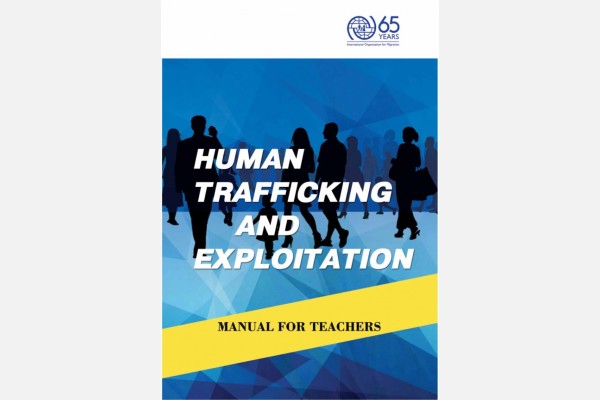Repository of Practices

Human Trafficking and Exploitation. Manual for Teachers
Dates
Type of practice
Summary
Within the Framework of the IOM regional project funded by SDC IOM Armenia developed full-fledged educational modules on trafficking for secondary school teachers and students. The students’ Book provides detailed information and a course outline for eight 45-minute lessons. The lessons introduce the topic of trafficking and engage students in discussion and role play to build understanding and gain skills for avoiding trafficking, making sound decisions about overseas work and taking part in anti-trafficking activity. IOM Armenia updated the Teacher’s Book in 2016 considering the changes in the legal and institutional frameworks of Armenia and combined both the Teachers’ and the Students’ book in one publication for easy use. The Updated manual is available in Armenian and English languages. All the developed materials have been pilot-tested thoroughly both at schools and universities and more than 3,500 teachers were trained to deliver lessons on human trafficking and use the textbooks. The textbooks have been approved by the Minister of Education and Science to use at schools and universities of Armenia and IOM printed more than 60,000 copies of the textbooks and delivered to all the schools of Armenia. As part of the Armenian national action plan to combat human trafficking the Ministry of Education and Science facilitated the full mainstreaming of lesson material on trafficking in persons in Armenia’s national educational curriculum and the new educational standard for the subject “Social Science” decrees that references to counter-trafficking will be included in the relevant textbooks for the 8th, 9th, 10th, 11th as well as the 12th grades in all schools in Armenia. To ensure that teachers would be able to effectively use the materials and deliver the messages, IOM Armenia developed a manual for students of pedagogical universities (future teachers). The manual is available in Armenian, English and Russian languages.
Organizations
Main Implementing Organization(s)
Detailed Information
Partner/Donor Organizations
Benefit and Impact
60,000 copies of manuals for teachers and for students were published and distributed in schools of Armenia.
All the lessons in the manual for students were tested in the local schools and reviewed based on the trainers' comments the manuals were reviewed by the specialists of the National Institute of Education and based on their approval, the Ministry of Education and Science approved the manuals for use in secondary schools of Armenia.
The manuals are being updated regularly by IOM Project Coordinator and are used in schools till present.
The Project increased the understanding of the dangers of trafficking in persons, the realities of migration and awareness of available preventive support mechanisms among school students, their teachers, and parents in Armenia, thus contributing to the prevention of trafficking in persons.
Key Lessons
The project allowed conducting country wide training of secondary school teachers and vocational school lecturers and providing all schools and vocational institutions in Armenia with necessary educational materials/tools. In such case it is possible to say that essential grounds were laid to sustain project results.
Public Awareness campaign of the Project allowed not only increasing the project outreach and raising awareness on the CT matters amongst larger target group, but it also provided for greater engagement by the civil society in Armenia.
Recommendations(if the practice is to be replicated)
The English and Russian versions have been shared with other IOM missions, by their request, implementing similar projects and in 2018 a similar manual was developed by one of our experts for IOM Turkmenistan.
Innovation
Additional Resources
Date submitted:
Disclaimer: The content of this practice reflects the views of the implementers and does not necessarily reflect the views of the United Nations, the United Nations Network on Migration, and its members.
More Related Practices:
- Strengthening the capacities and frameworks to collect data and evidence on migration, the environment and climate change (MECC) in Mexico
- IOM Engages Youth on Benefits of Migration at the 13th African Games in Accra, Ghana
- CLIMB Database
- Seguro Integral de Salud (SIS) – Protección financiera en Salud para peruanos y extranjeros residentes en el Perú
- Instituto Nacional Penitenciario | “Interno Universitario y Estudiando sin Fronteras”
Peer Reviewer Feedback:
*References to Kosovo shall be understood to be in the context of United Nations Security Council resolution 1244 (1999).
Newsletter
Subscribe to our newsletter.